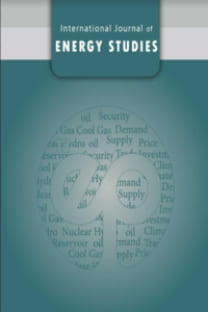Changing Balances In Turkish Energy Game Before The Coup
Turkey, with its growing economy, nearly 80 million population and increasing
energy demand is one of the most important countries in energy politics of its region.
Due to insufficient proven oil and gas reserves, and not having a suitable
environment to efficiently develop her renewable energy resources, Turkey’s
energy policies used to encapsulate only “sustainability on meeting the energy demand”
item.In the last two decades, Turkey steadily and successfully keeps leaping
on economic – industry – technology and trade areas, which, indeed, grows the Turkish
energy demand faster and faster. While the demand is growing and Turkish
influence in the region is flourishing, Turkey has been trying to develop and execute
new energy strategies, for example; “to become an energy transit hub in the
region”, “to support the domestic renewable energy investments and technology
productions”, “to take part in more international oil & gas projects”, “to
construct nuclear power plants”, “to actively support domestic coal
investments”.Naturally within the concept of some of these strategies, successful
steps have been taken that some of which have not yielded satisfactory results.
However, in general, its visionaries in energy strategies and politics are in
harmony with its economic growth. With its increasing influence in the region, flourishing of the
productivity and of its populace,
growing economy and political and strategical foresight rise young Turkey’ consciousness
to focus on a global visionary (as it did throughout history). These rapid strides
may not have been observed specifically in the energy area, however, Turkey’s
expectations stands high in all involved areas.Some international forces have been trying very hard in order to keep
Turkey under control. At constant pace, steadily growing Turkey has been tussling
with some political troubles since 2012. These troubles can be exampled as: “the
unrest at Gezi Park”, “17th and 25th December operations”
and “15 July coup attempt”. All of them aimed at weakening Turkey but none of
these attempts were able to tackle the growing power of Turkish Moon &
Star. In contrast to their goals, Turks has eagerly got united at each planned
attempt, however, each intervention disintegrated the country as it had to
concentrate on defying each attack. Turkey had to defer some important items
from its agenda such as energy in the midterm.In this paper, to be able to investigate if the 15 July terrorist coup
were related with the energy policies of Turkey, and if the key factors
expressed so far affect the Turkish energy equation before the coup. Naturally,
this will not mean that the main reason of the coup was energy, however,
possible interrelations will be tried to be emerged from the outcomes.
Before starting to evaluate the key factors related to Turkish energy
equation, some clues about the subcontractor terrorist group Fetullah Gulen
Terrorist Group (FETO), which is the apparent mastermind of the coup, will be deciphered.
Keywords:
Turkish energy game, turkish coup changing balances energy,
___
- 1 Oğuzhan Akyener, “Future of Israel Gas Export up to 2050 & Turkey”, Energy Policy Turkey, 2nd Issue, September 2016. 2 Oğuzhan Akyener, “ABD Kaya Gazi & AB Gaz Piyasasina Etkisi”, TESPAM, 2016.
- Yayın Aralığı: Yılda 4 Sayı
- Başlangıç: 2016
- Yayıncı: Türkiye Enerji Stratejileri ve Politikaları Araştırma Merkezi (TESPAM)
